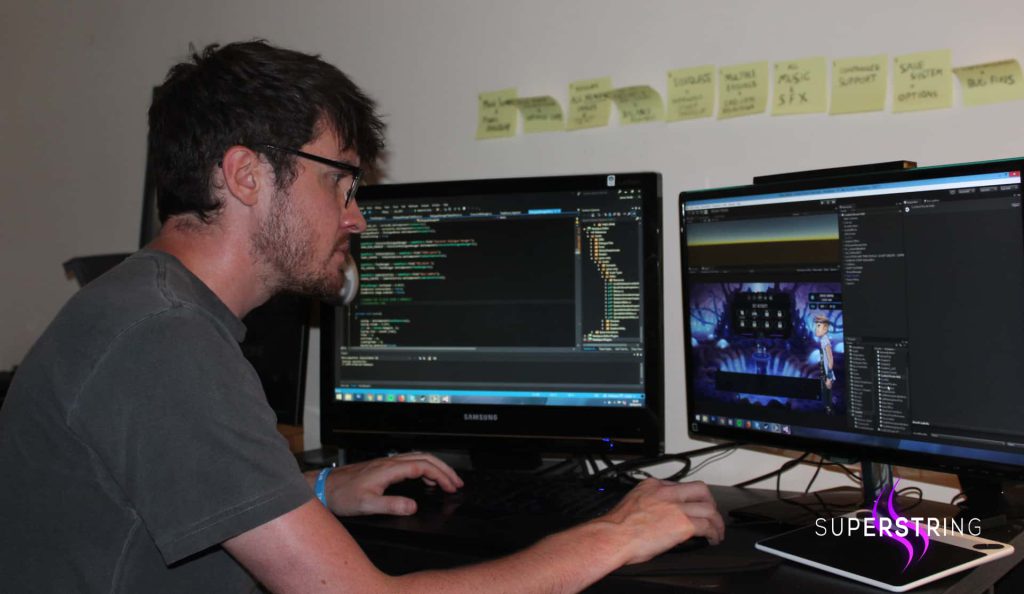Superstring / Headspun Game
1. How did you get started in being a business owner?
I’ve always had side-projects and creative endeavors I wanted to pursue outside of work. With my latest – Headspun, a game-idea I’d had for years – I decided to form a company to treat the idea with respect and release the product properly. I didn’t want to paint myself into a corner however, so I decided to form a studio which could continue to explore other types of narrative game in the future too.

Superstring is currently a one-man studio; my plan is to keep things lean and overheads at a bare minimum in order to maximise any sales from the release of the game. It’s strange considering myself as a ‘business owner’ as I’ve only considered myself a hobbyist game developer up until recently, but making the transition to a business owner feels like a natural progression.
2. What is the biggest challenge you have faced in being a business owner and how did you overcome that?
I think the biggest challenge has been keeping to my self-imposed schedules and milestones. As I don’t have a publisher, and I am juggling my business with another full time job I only really have myself to answer to, meaning it’s easy to let deadlines slip should life get in the way. So the challenge is really one of time management and lining my ducks up in a way that doesn’t have adverse affects on my wallet.
With no products in market just yet (Headspun is due out this September), there’s no money coming through the door which means I have to be very careful with regards to any outgoings and be modest with, for example, any marketing / PR costs in the run up to launch. With no direct experience of managing a company, learning to correctly plan, budget and lay down accurate dates is crucial to success here. With Headspun – my first commercial release – I’m learning a lot of those best practices along the way.

3. How has new technology impacted your business (especially as a games developer)?
The games industry moves forward with a relentless pace and there’s always new platforms and technologies to consider. Thinking two steps ahead is important but there’s only so much you can predict ahead of time in an industry like this. Aside from the tech itself you never know what genres or art-styles are going to be in vogue, and riding the trend wave is as important in games as it is in any other media form.
I’ve already spent a lot of time and energy researching and investing in the tech which will underpin my next project and while it’s dangerous to assume too much about where the industry is heading I think as a business owner you need to back yourself and take some educated risks.
4. As a games developer, what have you learned from your competitors in the industry?
The indie game dev community is a fantastically open and collaborative environment with expertise and experience always floating around the social sphere. While I used to actively absorb tips and best practices from competitors on development itself these days I try to seek out post-mortems on game launches, and try to learn what worked and what didn’t. Gamasutra is a fantastic resource for these first-hand debriefs of a game’s release and subsequent sales – with a fantastic amount of transparency from developers and studio heads. For me, more interesting than the success stories are actually the failures, and trying to pinpoint what not to do given a similar set of circumstances.



